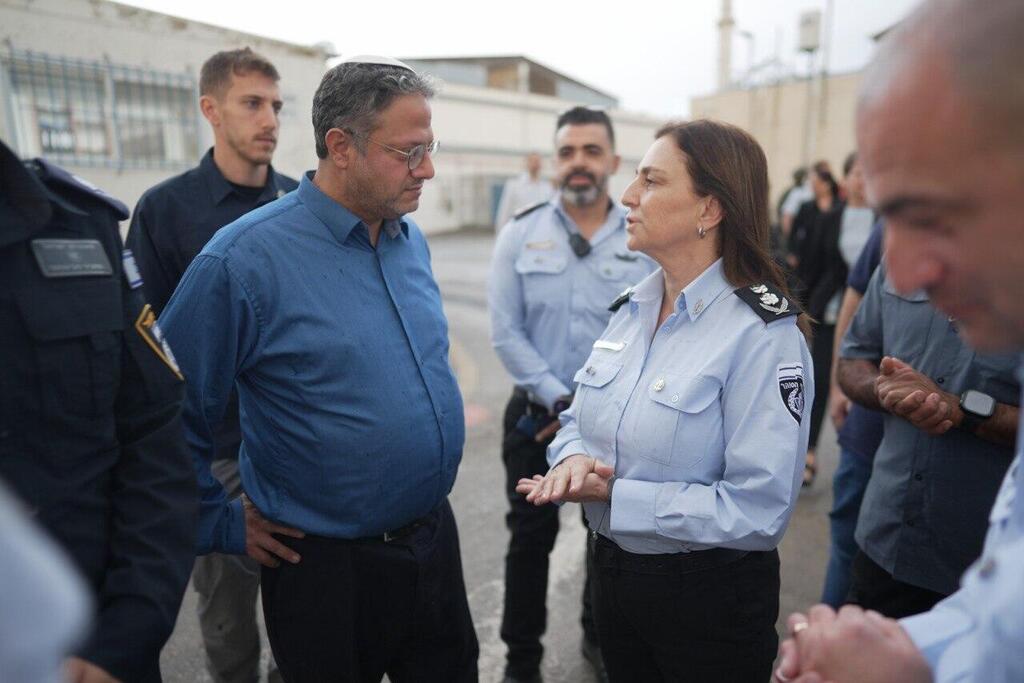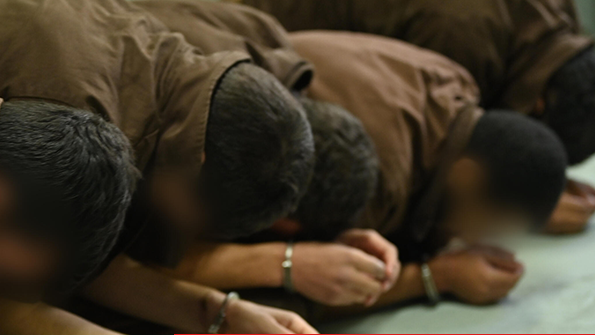Getting your Trinity Audio player ready...
Last week, a new wing was inaugurated in Elah prison, near Beer-Sheva. The accompanying press release emphasized that it complies with a 2017 Supreme Court ruling about the rights of people on the bottom of the social scale: prisoners. In response to an appeal by the Association for Civil Rights in Israel, the Court instructed the government to comply with a law that determines minimum living space per prisoner. It is true that prisoners are deprived of their liberty, but not of their humanity and personal dignity. Who of us will survive day after day in less than four square meters (4.5 with shower and toilet), as the law - and the ruling - demand?
Read more:
Several days later, when Kobi Yaakobi became acting Prison Commissioner, he announced that as per the policy of the Minister of National Security, Itamar Ben-Gvir, worsening the conditions of security prisoners is his top priority. Not only are prisons in Israel exceptionally crowded, thus encouraging violence and undermining hygiene and health, but it is well documented that there are not enough rehabilitation programs and that prison health services leave much to be desired.
But what is important to the man who is now responsible for a large, complex and sensitive operation are not such issues, which affect the lives of thousands, or learning what is at stake in order to define priorities. His foremost duty to make the life of security prisoners harder.
You may ask: Is this what interests you now? Four months into the war? The conditions of prisoners? Including security prisoners? Do you have any idea what they did, why they are incarcerated? Some of what they did I know, some I will know, some I will never know, and some, it is better not to know. It is impossible to enter the minds and souls of those who survived a disaster, or to imagine the last minutes of victims. The distressing conditions in which our captives are held are inconceivable, and it goes without saying that their captives' conduct is abhorrent. But let us assume and hope that we are different.
Presumably the justice system matches sentence to the crime, according to four generally accepted goals: punishment for the act, removing the perpetrator from society, deterring others, and rehabilitation (not applied to security prisoners). Absent from the list are revenge, humiliation and de-humanization – a bad person, the worst imaginable, is nevertheless a human being. Whoever targets the humanity of another, undermines his own humanity (and let us not discuss possible implications for wardens and beyond, or the wisdom of making such a statement given our captives' situation, and while the ICC in Hague was deliberating).
2 View gallery


Itamar Ben-Gvir and Katy Perry while touring a prison
(Photo: IPS Spokesperson's Unit)
Israel is undergoing very difficult times and facing immense challenges. Hidden among them is the need to maintain our humanity in the face of the cruelty we continue to witness. Principles are not tested when they are easy to uphold, but when they are not. It is not the welfare of security prisoners which primarily concerns me, but rather, who we will be when this is over. Who will we want to see, looking at us from the mirror? Which of the aforementioned news items will we prefer to read? Will we understand what is happening to us, if we give up on our humanity? Will we want to restore it? Will we have the wherewithal to do so?
- Tova Herzl is a former Israeli ambassador to South Africa and the Baltic countries, and served as liaison between the U.S. Congress at the Israeli Embassy in Washington




